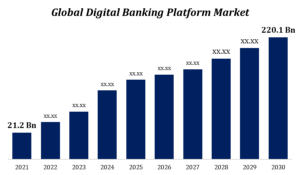The Role of Big Data in Fintech: How Analytics Is Shaping Financial Services
The convergence of big data and fintech has unleashed a new era of innovation in the financial services industry. Big data analytics has transformed how financial institutions operate, offering unprecedented insights into customer behavior, risk assessment, fraud detection, and more. In this article, we will delve into the pivotal role of big data in fintech, exploring how data analytics is reshaping financial services and enhancing customer experiences.
Understanding Big Data in Fintech:
- Vast Data Generation: The proliferation of digital transactions, mobile apps, and online platforms has led to an explosion of data, creating opportunities for meaningful insights.
- Structured and Unstructured Data: Fintech leverages both structured data (traditional databases) and unstructured data (social media, text, images) to gain comprehensive insights.
- Real-Time Processing: Big data technologies enable the processing and analysis of large datasets in real-time, allowing for timely decision-making.
Enhancing Customer Experiences:
- Personalized Services: Big data analytics enables financial institutions to understand customer preferences and behaviors, tailoring products and services to individual needs.
- Risk Assessment and Underwriting: Advanced data analytics improve risk assessment and underwriting processes, enhancing the accuracy of credit decisions.
- Fraud Detection and Prevention: Real-time analysis of transactions and behavior patterns helps identify fraudulent activities, minimizing risks for both customers and institutions.
- Chatbots and Virtual Assistants: Big data-powered AI enables chatbots and virtual assistants to provide personalized financial guidance and support to customers.
Transforming Operations and Efficiency:
- Algorithmic Trading: Financial markets leverage big data analytics to develop algorithmic trading strategies, optimizing investment decisions and execution.
- Operational Efficiency: Insights from data analytics enhance operational processes, reducing costs and improving efficiency in areas like customer onboarding and regulatory compliance.
- Predictive Analytics: Big data enables predictive modeling, allowing financial institutions to forecast market trends and customer behavior.
Challenges and Considerations:
- Data Privacy and Security: Handling sensitive financial data requires stringent security measures and compliance with data protection regulations.
- Data Quality and Integration: Ensuring data accuracy and integrating disparate data sources are crucial for deriving meaningful insights.
- Talent and Skill Gap: The demand for skilled data scientists and analysts has increased, highlighting the need for talent in this field.
The Future of Big Data in Fintech:
- Advanced AI and Machine Learning: AI-powered algorithms will continue to evolve, enabling more accurate predictions and automating complex financial tasks.
- Blockchain Integration: Big data analytics combined with blockchain technology can enhance transparency, security, and efficiency in financial transactions.
- Regulatory Compliance: Big data analytics will play a pivotal role in helping financial institutions comply with evolving regulatory requirements.
Big data has emerged as a driving force in reshaping fintech, revolutionizing customer experiences, operational efficiency, and risk management. By harnessing the power of data analytics, financial institutions can provide personalized services, mitigate risks, and unlock new opportunities for growth. As technology and data continue to evolve, the role of big data in fintech will only become more essential, leading to a more agile, customer-centric, and innovative financial services landscape.Top of Form


































